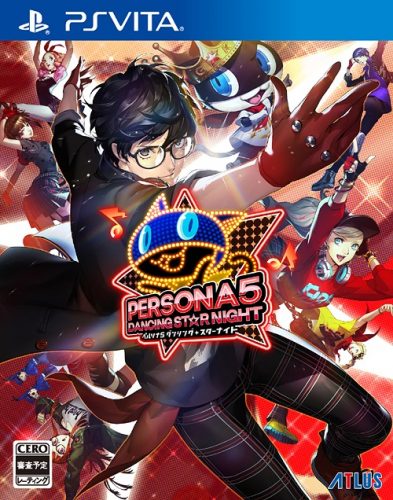Upon the drafting of this article, we are still months away from the Detective Pikachu and Sonic CG/live action movies, and as of present, anime adaptations to Ace Attorney and Persona 5 are still broadcasting. Ever since the gaming industry has existed, a number of games have gotten some form of media adaptation. Some have been excellently received on the animated side of things, while many of its live action adaptations have been critically panned and failed at the box office. While animation, cinema, and games have been evolving the past 30 years, are adaptations to games still necessary?
Technological Evolution
Ever since the 32-bit era, video games have allowed for full voice acting and cinematic cutscenes. This has been demonstrated in Resident Evil and Metal Gear Solid since their debuts on the PlayStation 1. Of course, not every video game from that era had taken advantage of such technological features such as Final Fantasy VII, but for its own distinct reasons. Now with present consoles and PC technology, video games can visually present its stories more cinematically than ever before, so why bother adapting them to other media forms?
Visual Styles
In the case of anime, obviously for games of Japanese origin, they share pretty much the same visual style. This is excellently demonstrated through Persona 5 and Ace Attorney, and even with older anime such as Street Fighter II. If you have played Ace Attorney, its style and presentation makes it very easy to adapt into anime form (though it did get a live action adaptation directed by Takashi MiIke), and the anime does a great job of faithfully portraying the story, character designs, the poses, its soundtrack, and even down to how everything is framed in the courtroom scenes (sadly, Phoenix’s English voice is not provided by Ben Judd).
For Persona 5, which had animated cutscenes in its original game, it also exhibits a style that screams anime adaptation (like its predecessors), and the anime uses the same seiyuu cast and implements the same soundtrack from the game. Video games and anime going hand in hand pretty much goes back to the age of sprites from the 8-bit era. With how sprite technology of the time worked, it made it more convenient for Japanese developers to rely on anime/manga inspired graphics as we see in Dragon Quest and Zelda, and some 16-bit titles such as Chrono Trigger.
Since American cinema is much different from video games (or any form of Japanese media) in terms of visual style, such faithful adaptations you see in anime have proven to be almost next to impossible in Hollywood. This dates back to the infamous Super Mario movie starring Bob Hoskins, where the movie was critically panned for not being a true representation of the original source material. And this tradition still holds up today with the recent Assassin’s Creed movie. As for the recent Tomb Raider movie, it did get higher than average reviews, but it is thanks to how its latest incarnation has a style that feels very in-tune with Hollywood cinematic visuals. Considering that Mortal Kombat was inspired by old school martial arts cinema in comparison to Street Fighter which took inspiration from manga, it was much easier to successfully adapt Mortal Kombat into a Hollywood movie in comparison to Street Fighter.
Qualities of The Original Game
Going back to the original question, considering how video games as they are today have evolved by including voice acting, cutscenes, and composed soundtracks with lyrics and instruments, why bother adapting them in anime or movie form? When you play Metal Gear Solid (a movie has been rumored for years) or a Yakuza game (which did get a live action movie), which are notorious for their cutscenes, they’re no different from watching a TV show or movie but you get to express yourself through the main character(s). With the original Persona 5 game, you’re pretty much experiencing an anime in the form of a video game as the nameless protagonist (who is named Ren in the anime).
Ace Attorney just adds in voice acting and without being able to experience first hand how to contradict testimony with evidence, the tension of getting to the bottom of the truth in the game feels lost in the anime. When you watch Persona 5 in anime form, some of its original unique novelties such as combining Personas, working part-time, and the social link systems are consequently lost because they wouldn’t fit within the confines of non-video game media. So, why bother watching them when you have the games to get both an active and passive experience?
Final Thoughts

One easy answer is of course advertising. When you get something successful, it’s easy to run with it in just about every way possible. While some people may get into an anime because they loved the game, the reverse could also apply. If someone watched an anime to Persona 5, Ace Attorney, Castlevania, or Steins;Gate, it could influence viewers to go out and try the game. On the other hand, you can’t exactly find Castlevania III easily these days and Steins;Gate explores way so much that the anime can’t exactly fit or exhibit in what ways you can direct the story. For Street Fighter fans, they could enjoy the Street Fighter II anime for its insane action.
As for live action movies, considering how most of them have been epic failures, we doubt that they have had any effect other than Mortal Kombat. However, the upcoming Detective Pikachu looks very promising while the upcoming Sonic movie has not only been panned by fans, but by Yuji Naka himself. Considering Hollywood business practices (which can qualify as its own article), we’re not surprised. Thanks to anime and (maybe) movie adaptations, these brand names can gain a wider audience and bring people into the games, and the reverse may hold true.

